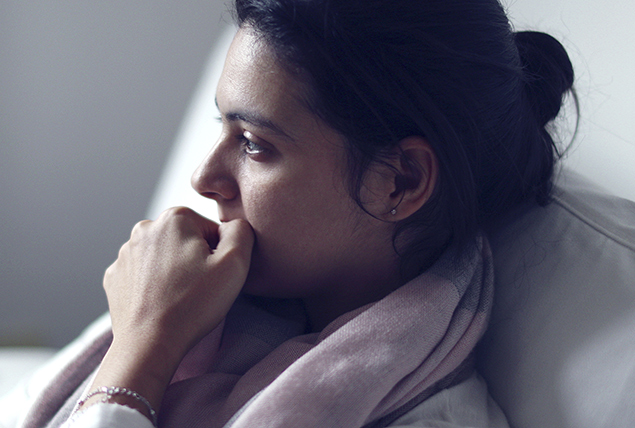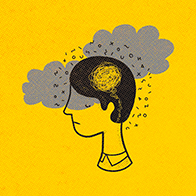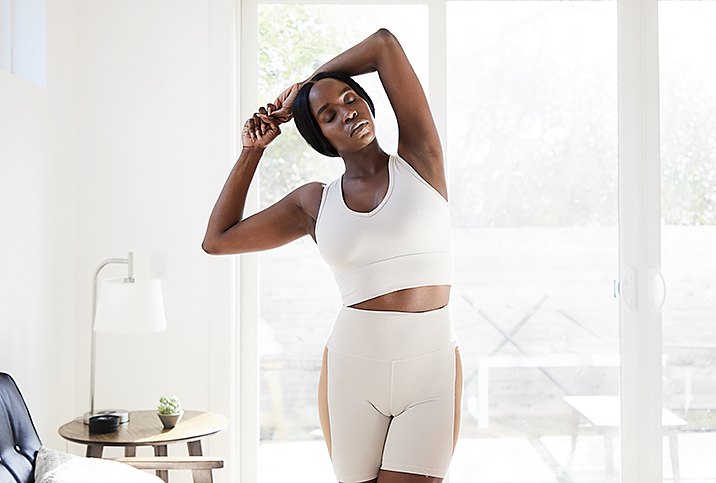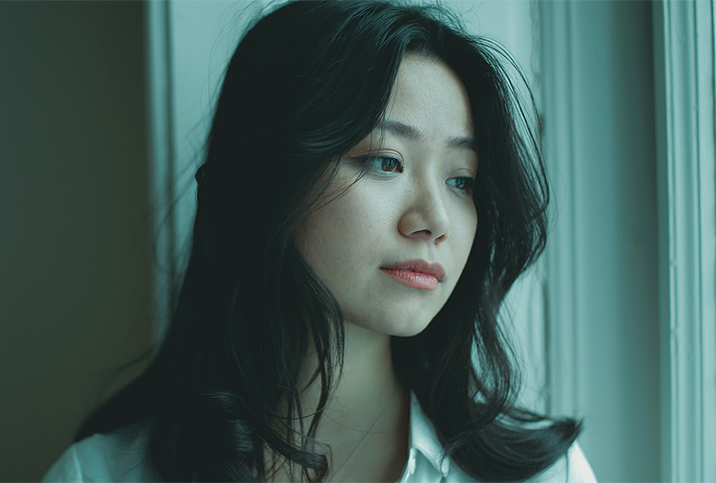Why Millions of Americans Avoid Therapy Despite Having Anxiety

It felt like her anxiety manifested as a pain in her chest. She sometimes feels as if she's experiencing a heart attack. She used remote work as an opportunity to live abroad and believes her symptoms are triggered by being far away from family.
"If anything happens to them, I'm far, or if anything happens to me, I'm far," said 28-year-old Sofia, a Texas woman who didn't want to give their last name. "I feel actual physical symptoms, and I start to freak out. I'll think if I pass away, my family won't be able to make it on time. And vice versa. If I don't hear from my mom, I'll worry. Then I'll stress I shouldn't be far away from her. Life is short."
Sofia explained that she feels lucky to have a partner who helps ground her when intrusive thoughts spiral out of her control, even though she tries to practice self-soothing and uses fitness to get out of her head.
She is joined by an estimated 40.1 million Americans affected by an anxiety disorder, about 19.1 percent of the adult population. But despite her anxiety occasionally keeping her up at night, she hasn't yet made the decision to see a therapist.
"Anxiety is a feeling of uneasiness, fear or worry, often accompanied by physical symptoms including rapid heart rate and rapid breathing," said Rachel Zar, M.S., L.M.F.T., a clinician at Spark Chicago Therapy in downtown Chicago. "It's important to remember that everyone has some level of anxiety and that this feeling serves an adaptive purpose—basically, it's an alarm system that something is wrong, scary or unsafe. Anxiety becomes maladaptive when it's more chronic, interfering with daily functioning like focus, sleep or connection with others."
Why are anxious Americans avoiding therapy?
Generalized anxiety disorder affects 6.8 million adults, or 3.1 percent of the U.S. population, but only 43.2 percent undergo treatment, according to the Anxiety and Depression Association of America.
Sofia said she doesn't "want to take pills," and the thought of having to do that has so far discouraged her from seeking professional help. Unfortunately, this is one of many misconceptions about therapy and is related to the associated shame and stigma.
A therapist's job is not inherently to medicate a patient but to work with them in order to uncover the root of their problems and to chart a course of action to best address those problems. And that's usually a mutual decision.
Laurel Steinberg, Ph.D., a licensed psychotherapist and adjunct professor at Columbia University in New York City, believes the divide is partly due to the fact that it's one thing for the general public to think positively about therapy and mental health, but it's entirely another for individuals to have the self-awareness to know when they need help.
Patients over the years have told her they avoided seeking therapy for fear of judgment, including from the therapist, too. They also admitted to not knowing how to pick the best provider, and that caused further anxiety.
Steinberg suggested asking providers about their psychotherapeutic orientation and finding experts who align with your problem areas and goals. It's also wise to ask about cancelation or rescheduling policies and their treatment approach. Most providers offer a complimentary initial phone consultation to get acquainted.
What is the point of therapy, anyway?
Though our modern culture has helped normalized mental health and therapy, there remains a divide between the number of people advocating—or liking and reposting—for therapy and the number of people actually walking into a therapist's office and knowing what it entails. After all, memes might capture attention, but they don't adequately educate an audience. In influencer terms, think of therapy as a mental collaboration.
By avoiding the action of working with a professional, you risk the problem permeating into your personal life and the people closest to you, such as your partner, friends and work colleagues.
"Therapy can help you understand the roots of your anxiety and learn skills for regulating your response to anxiety so that it doesn't get in the way of your functioning," Zar said.
Of course, you don't need to have an impediment to your mental health to benefit from therapy.
“A strong therapeutic relationship helps people achieve their personal, professional and family goals in an environment of acceptance and care. With a healthy measure of tough love," Steinberg said. "So it's more than just finding solutions to your problems but learning the thinking skills needed to live a better quality of life."
Is the cost of seeking help is too high?
Brian O'Conner, a 50-year-old in New York, said his last relationship ended because his partner's angst became too emotionally taxing.
"He would constantly worry about his health and obsess about any mark on his body, and then he would obsess about anything on my body," O’Connor said. "It was exhausting always having to convince him there was nothing wrong."
The New Yorker said his partner refused to accept financial help because he couldn't afford to pay a therapist, which resulted in an impasse in their relationship.
According to a survey conducted by Verywell Mind in 2021, about 40 percent of people needed financial assistance to attend therapy, even if insurance covered part of the cost. In fact, the study found that more than one-third of Americans who stopped going to therapy cited money—including secondary costs such as childcare and transportation—and insurance coverage as the cause.
Some people are finding ways around financial barriers, such as 29-year-old Christina Morales, based in Miami. She doesn't have insurance but still opts to see her therapist once a month.
"I don't think I need to speak to someone every week, and this makes my meetings with her way more productive because I come with so much to say," Morales said. "It's not ideal, but it's more helpful than nothing."
Connecting physical intimacy, anxiety and therapy?
Steinberg noted that anxiety might force a person to lean heavily on their partner for affirmation while intruding on their private moments together.
"Anxiety is the biggest turn-off I can think of, as being turned on and anxious simply don't go well together and compete for brain space," Steinberg said. "Feeling anxious prevents people from tuning into their senses, which are an important part of the physical and mental arousal process to turn on the sex centers in the brain so they hopefully achieve great, climactic heights."
Zar said that anxiety generally focuses on worries about the past or the future. As a sex therapist, she has seen that having good sexual functioning, arousal and pleasure requires being very present in the moment and in your body.
"This may make it harder to get physically and emotionally aroused, to communicate our wants and needs to our partners, or to experience pleasure or orgasm," she added.




















